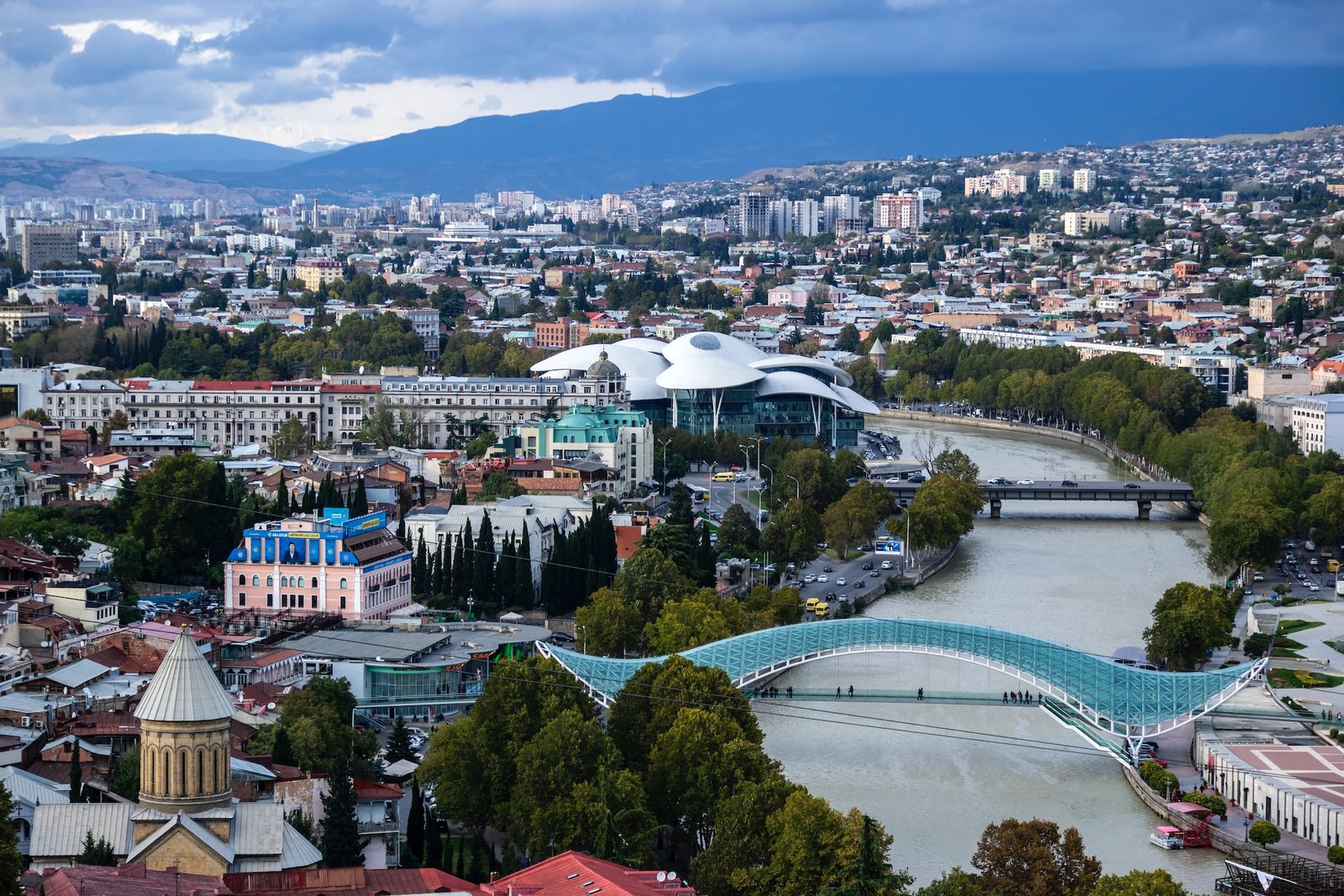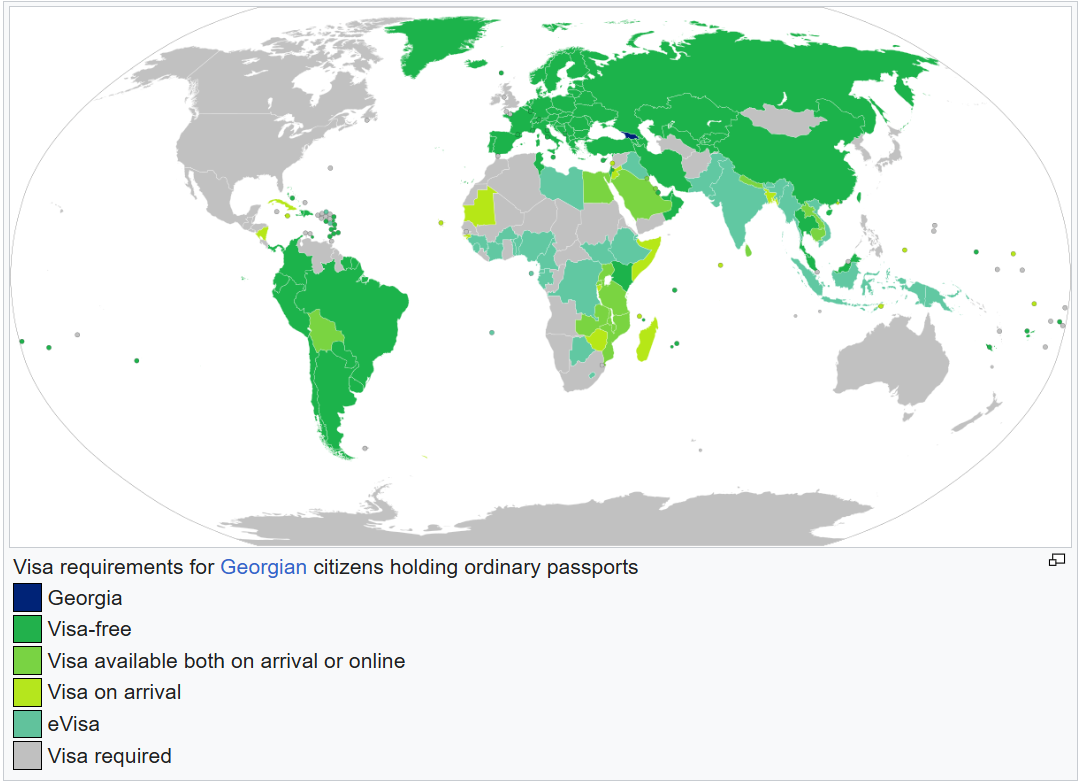How To Get Residency in Georgia: A Comprehensive Guide
Capital: Tbilisi
Population: 3,657,000 (2024, 129th)
Ethnic Groups: 86.8% Georgians, 6.2% Azerbaijanis, 4.5% Armenians, 0.7% Russians
Area: 69,700 km2(119th)
Offical Language: Georgian
Currency: Georgian Lari
GDP per Captial (PPP): $30,750 (2025 estimated, 70th)
Human Development Index: 0.844 (2023, 57th)

Country Profile:
Straddling both Europe and Asia, Georgia is culturally identified as a European nation. It is a developing country with a very high Human Development Index. Economic reforms since independence have led to higher levels of economic freedom, as well as reductions in corruption indicators, poverty, and unemployment. It was one of the first countries in the world to legalize cannabis, becoming the only former-socialist state to do so.
Visa & Immigration System:
There are several categories of Residence Permits available to foreigners. The most common and direct routes are based on investment, employment/business, and family ties.
1. Residency Through Investment and Property Ownership
Georgia’s Investment Residence Permit and Short-Term Residence Permit are the most popular options for those with capital, offering a minimal-presence path to long-term legal status.
A. Short-Term Residence Permit (Property Ownership)
This is the lowest-threshold option for passive residency.
-
Minimum Investment: Purchase of one or more pieces of non-agricultural real estate (e.g., an apartment, house, or commercial unit) with a confirmed market value of at least $100,000 USD equivalent in Georgian Lari (GEL).
-
Initial Permit Duration: The permit is typically issued for one year and is renewable annually.
-
Renewal Requirements: To renew, the investor must maintain ownership of the property, and an official appraisal must confirm its value has remained above the minimum threshold.
-
Path to Permanent Residency: After six years of continuous short-term residency based on property ownership, the applicant becomes eligible to apply for a Permanent Residence Permit.
-
Key Advantage: No requirement for business activity, annual turnover, or a minimum stay in the country.
B. Investment Residence Permit (High-Value)
This option offers a faster route to long-term stability with a higher capital commitment.
-
Minimum Investment: An investment of at least $300,000 USD equivalent in GEL.
-
Investment Options:
1. High-Value Real Estate: Purchase of non-agricultural real estate with a market value of $300,000 USD or more.
2. Business Investment: Investment of $300,000 USD into a new or existing Georgian enterprise.
-
Initial Permit Duration: Issued for five years immediately.
-
Renewal/Permanent Status:
Real Estate: If the property ownership is maintained for the full five years, the permit can be converted into a Residence Permit for Indefinite Stay (a form of permanent residency).
Business: The business must meet specific minimum annual turnover requirements to maintain the permit and qualify for indefinite stay: $50,000 USD (Year 1), $100,000 USD (Year 2), and $120,000 USD (Years 3-5).
2. Residency Through Work and Business Activity
This path is intended for entrepreneurs, employees, and those actively contributing to the Georgian economy.
A. Work Residence Permit (Employment/Business)
-
Eligibility Grounds:
Employment: Having an active employment contract with a Georgian company or Individual Entrepreneur (IE) for at least six months, with a salary of at least five times the Georgian subsistence minimum (a modest but dynamic figure, currently around 1,272.50 GEL per month).
Business Ownership: Registering a Georgian company (LLC or IE) and demonstrating a minimum annual turnover.
Turnover Requirement: The sponsoring company (or the IE applicant’s business) must achieve an annual turnover of at least GEL 50,000 (Georgian Lari, approximately $20,000 USD) per foreign employee applying for residency. This is a critical requirement for new businesses.
-
Initial Permit Duration: Typically granted for six months to one year initially, renewable for longer periods (up to six years total).
-
Key Requirement: The applicant must prove the company’s financial activity meets the turnover threshold for the year preceding the application.

3. Other Common Residency Options:
A. Study Residence Permit
-
Eligibility: Issued to foreign citizens pursuing studies at an authorized educational institution (university, college, or school) in Georgia.
-
Required Documents: A certificate from the educational institution confirming enrollment and the expected duration of study.
-
Financial Requirement: The applicant must prove sufficient funds to cover their stay (typically a bank statement showing funds equal to twice the Georgian subsistence minimum per month).
-
Duration: Granted for the duration of study, up to a maximum of six years.
B. Residence Permit for Family Reunification
-
Eligibility: Granted to the spouse, minor children, or legally incapable dependents of a person who already holds a Georgian Residence Permit (excluding a Study or Special permit) or is a Georgian citizen.
-
Required Documents: A document proving the kinship (e.g., an apostilled or legalized marriage or birth certificate).
-
Duration: Issued for the same duration as the sponsoring family member’s permit, or up to six years if the sponsor is a Georgian citizen.
C. George Digital Nomad Visa:
Georgia’s program for remote workers, officially called “Remotely from Georgia,” allows citizens of nearly 100 countries to live and work there for up to one year.
Applicants must be freelancers, remote employees, or business owners with a foreign income, proving a minimum monthly income of at least $2,000 USD (or $$$24,000 in savings) and holding valid health insurance. The application process is entirely online. For many nationalities, Georgia’s standard 365-day visa-free entry makes a formal digital nomad visa unnecessary, though this program provides a clear legal framework.
Permanent Residency & Citizenship:
The Georgian Permanent residency status can be achieved after holding a Temporary Residence Permit for a combined period of six years. The exception is the $$$300,000 USD Investment Permit, which grants a Permanent (Indefinite Stay) Residence Permit after five years of maintained investment.
Foreigners who have continuously lived in Georgia for 10 years and have passed a local language test, as well as demonstrated knowledge of Georgian history and culture, can apply for a Georgian passport.
Passport Power:
Georgia does not recognize dual citizenship. Its passport ranks 43rd globally, allowing holders visa-free or visa-on-arrival access to 122 countries and regions worldwide. (As of Oct 15, 2025)

Useful Links:
Georgia Residence Permit And Residence Card:https://migration.commission.ge/index.php?article_id=15&clang=1